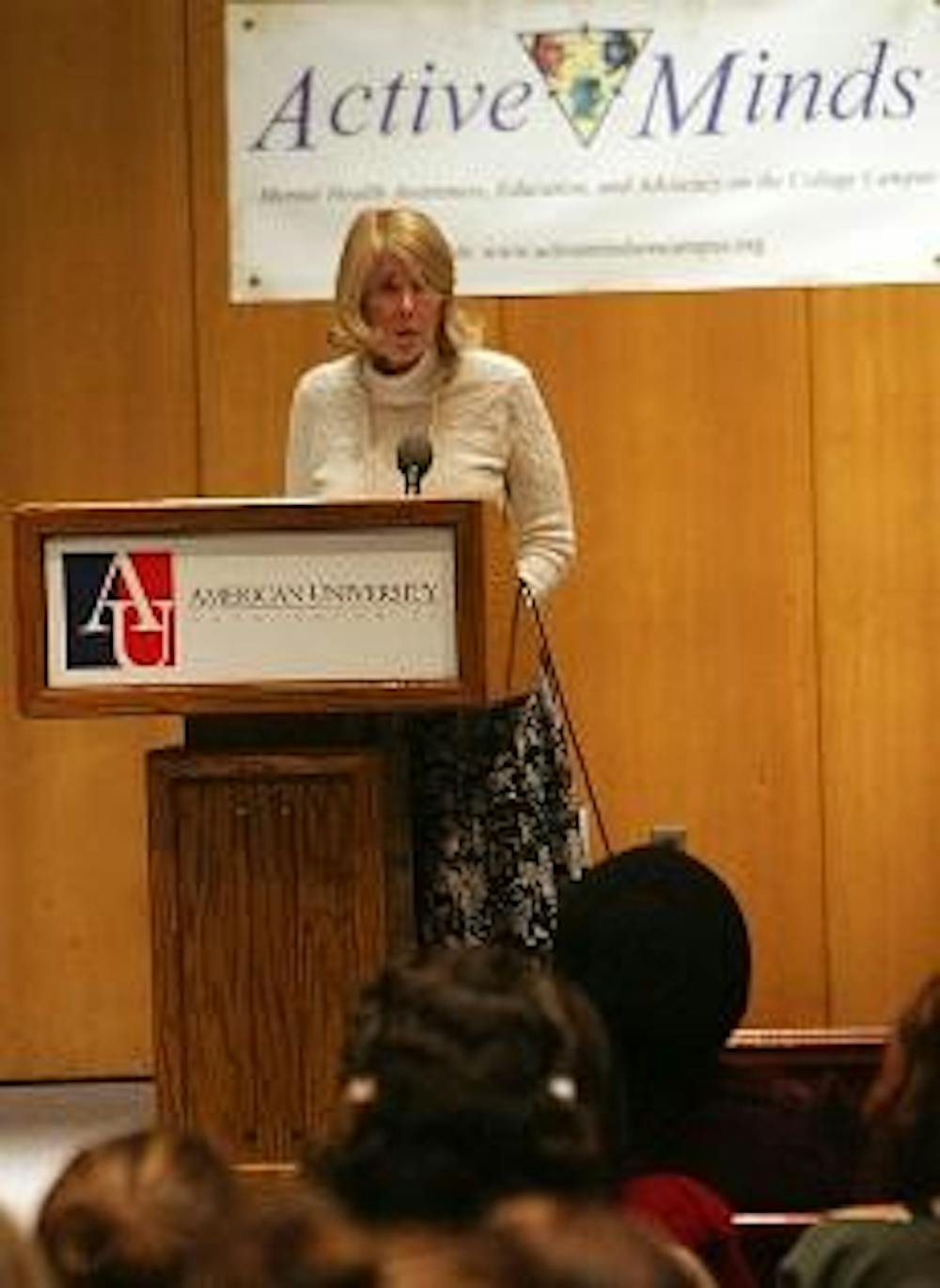In order to reduce the high levels of depression and anxiety among college students, negative perceptions surrounding mental illness must be eradicated, according to members of the student-based advocacy group Active Minds.
According to Active Minds founder Alison Malmon, the purpose of the "Mental Health on Campus Conference," which took place at AU this past Friday and Saturday, is to further the organization's fight against a legacy of ignorance and misunderstanding concerning mental health via a "movement that will break stigma and effect change on campus and in society." The conference featured discussions and presentations by distinguished figures in the field of mental health and students from universities nationwide.
By promoting education and open discussions of mental health issues such as depression, members of Active Minds seek to combat what Malmon describes as an epidemic of suicide among college students, most of whom are in the age range where serious mental disorders usually develop.
Malmon and other advocates say they see the recognition of mental health problems in young adults as the "last frontier" in social health awareness. "Twenty years ago cancer was the 'c-word' - nobody talked about cancer," Malmon said. "That's where we are right now. One in four adults is diagnosed with some form of mental illness ... but we're not discussing it, we're not facing it."
The movement operates at a peer-to-peer level where students are aware of one another's problems that may otherwise go unnoticed and can directly influence one another's decisions.
"We see it before professors, administrators and even parents," Malmon said. "Organizations that work from the top down don't necessarily reach the students."
If suicide and untreated disorders on campus are going to be prevented, participants in the conference said they believe college students must recognize that mental health is a universal issue.
"We focus on mental health, something everyone should have," said Ross Szabo, an AU alumnus who spoke at the conference on Friday. "A lot of times in college, you don't see it."
Szabo shared his experience of having bipolar disorder while in college, an illness he battled with intense drinking. The problems of depression and alcoholism were also addressed by Dr. Kay Redfield Jamison, author of "An Unquiet Mind," who spoke in Kay Spiritual Life Center Friday.
"Depression is a very, very, very common illness," Jamison said. "The highest risk period is when people are students in college."
Both Szabo and Jamison reflected on the growth of awareness of mental health issues in recent years. In Szabo's presentation, he likened the initiative of Active Minds to the historical struggles for women's suffrage and civil rights.
When Jamison went public with the story of her bipolar disorder in her book, she said she was amazed at the amount of hate mail she received.
"In general, society has come a long way - people are less judgmental," she said. "But there's still a long way to go."
AU's Active Minds chapter President Beth Soderberg said the conference was beneficial to their understanding of the issues and their role as advocates.
"I find it to be very self-reflective," she said. "Everyone is coming from such an individual place, and when they come together, you realize why you're involved."
Vice President Taryn Olsen said people who attended the conference are or were affected directly by mental illness. "It's another level of dedication"





